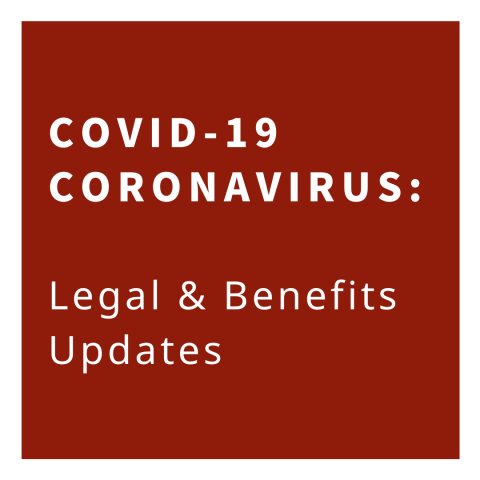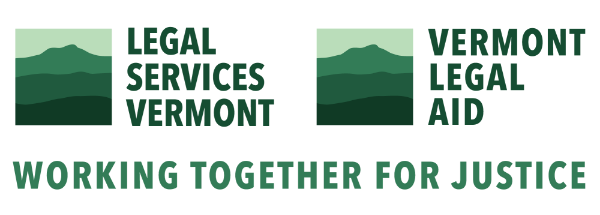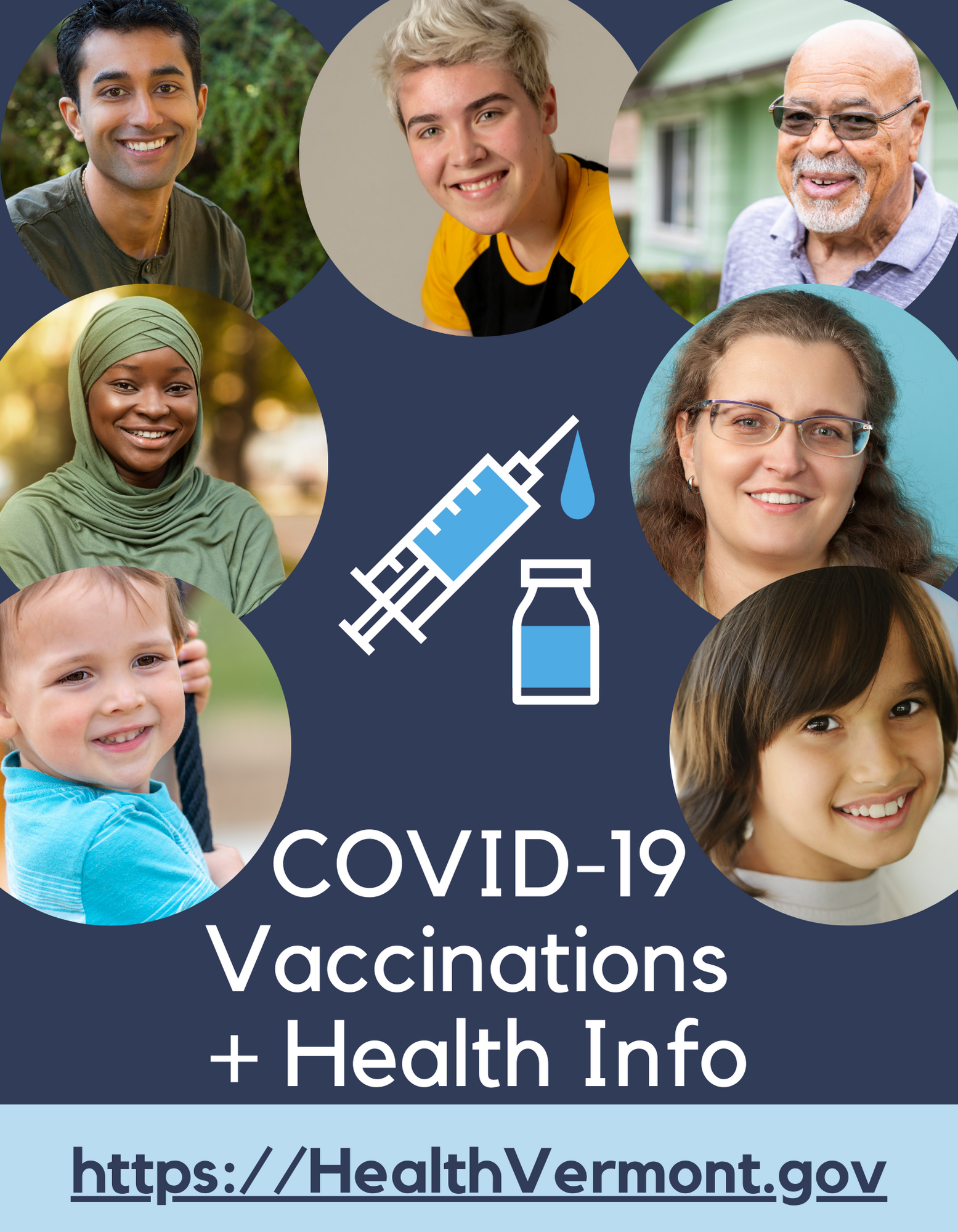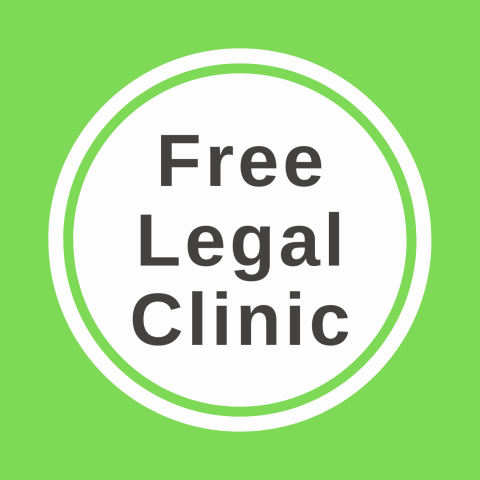
COVID-19 created changes to public benefits, new financial help and more. Here we keep a list of important changes to help Vermonters and community partners.
COVID-related topics on this page include:
Housing & Utilities
- Vermont Emergency Rental Assistance Program (VERAP)
- Evictions
- Hotel / motel program
- Emergency housing
- Mortgages, foreclosures
- Property taxes
- Utilities and help paying for utilities *translated information available
Work & Pay
Money & Food
- COVID-19 economic impact payments / stimulus checks
- Food
- Student loans
- Credit reports
- Property taxes
Health Care
- Health insurance
- Medicaid renewal process to start
- COVID-19 vaccine
- Immigrants, health care and the “public charge”
Other Topics
- “Remote hearings” — Court hearings by video or phone
- Translated COVID-19 coronavirus information
- Recent updates to this information
HOUSING & UTILITIES
COVID rent help
Vermont Emergency Rental Assistance Program (VERAP)
The Vermont Emergency Rental Assistance Program (VERAP) is not accepting any more applications for assistance.
Visit the VERAP website for details on their plans for closing out the program.
Visit these other pages on our website for ways you can get help with housing and utilities:
- Evictions in Vermont and your rights
- Section 8 subsidized housing program
- Homeless shelters, emergency housing and help for people who are homeless
- Heat, energy and water assistance programs
Through July 31, 2023, you can ask for help in finding housing assistance from a group called the Boots on the Ground Team.
Evictions
Hotel / motel emergency housing program
Learn more about the hotel / motel emergency housing program.
Emergency housing
- The Department for Children and Family's (DCF) Economic Services Division offers housing supports / emergency housing for homeless households. For more information or to apply, contact the Benefits Service Center at 1-800-479-6151. If it is after business hours or on a weekend or holiday, call 2-1-1.
- When you apply for shelter with DCF, they will let you know if a shelter has opened in your area. You can also call 2-1-1 to find out if there is a warming shelter or other shelter in your area.
- If you are denied or terminated from a shelter, call us for help at 1-800-889-2047.
- If you stay in a shelter or motel, you need to participate in “coordinated entry.” Through coordinated entry, you will be assigned a housing case manager who will help you access subsidies and programs to help you get permanent housing. To learn more about coordinated entry, call 2-1-1. If you worked with your case manager to apply for a subsidy or other program and your application was denied, call us for help at 1-800-889-2047.
- Veterans can get housing help from the Supportive Services for Veteran Families (SSVF) program at 1-844-820-3232 (toll-free); the National Call Center for Homeless Veterans at 1-877-424-3838 (toll-free); or Vermont Office of Veterans Affairs at 1-888-666-9844 (toll-free). Vermont Veterans facing eviction or foreclosure should contact the South Royalton Legal Clinic at VLGS for advice and help.
Mortgages and foreclosures
Learn about mortgage payments and foreclosures during the COVID-19 coronavirus crisis.
Vermont Homeowner Assistance Program (VHAP)
Update on 8/27/2023: VHAP stopped taking applications. There was a waitlist, but that is also closed now. Learn more about VHAP.
Heat / Water / Septic / Electricity / Phones / Internet / Utilities
- Renters and landlords: Habitability and heating in rental housing: Free resources available in Vermont.
- Homeowners: Learn about a new program from the Vermont Agency of Natural Resources that can help low- and moderate-income Vermont homeowners replace their failed or inadequate home water or wastewater systems. The Healthy Homes On-Site Program provides help to eligible property owners, including owner-occupied multi-family properties with up to four units. Visit the Vermont Agency of Natural Resources website for details.
- See our Heat, Energy and Water Assistance Programs page to learn about other ongoing programs that may help you get power, fuel, water and heat for your home.
- If you need help dealing with utility payments, consider asking your utility company for a long-term payment plan. Your local Vermont Community Action Agency can help you.
- Internet help: The Affordable Connectivity Program (ACP) is an FCC benefit program that helped low-income households afford broadband internet. As of March 2024, this program is ending. If you have ACP, contact your internet company to learn more about how the end of ACP will impact your internet service and bill.
- The FCC also announced that the Lifeline program will suspend some rules to help keep low-income Vermonters connected by phone and internet. Lifeline is a federal program that gives a $9.25 monthly discount on phone or internet service to eligible households. Learn how to apply.
- Also, learn about a low-income internet program called Internet Essentials.
- The Consumer Affairs & Public Information (CAPI) Division of the Department of Public Service can help Vermonters with regulated utility concerns. This includes electric, telephone, natural gas and private water service. They also try to help with cell phone services and broadband matters. You can contact them:
- by phone at 1-800-622-4496
- by email at psd.consumer@vermont.gov
- by online form
WORK & PAY
Unemployment
- Learn about unemployment benefits, including questions about COVID and employers who say you need a vaccine.
- Learn how unemployment pay impacts other benefits.
- Learn what you can do if the Department of Labor says you were overpaid unemployment benefits and need to pay them back.
MONEY & FOOD
COVID-19 economic impact payments / stimulus checks
Learn more about the past economic impact payments / stimulus checks from the federal government. If you believe you did not get all or part of your stimulus payments, you have three years to claim the money. That's three years from the date the return is normally due.
Food
3SquaresVT is Vermont’s food stamp program. 3SquaresVT is available to help you meet your family’s food needs. Even if you have never received 3SquaresVT before, you should apply if your income has changed and your family is experiencing food insecurity. Learn more about 3SquaresVT.
Student loans
Learn about the help you can get with your federal or private student loans at this time.
Credit reports
Because of the COVID-19 pandemic, everyone in the U.S. can get a free credit report each week from all three national credit reporting agencies (Equifax, Experian and TransUnion) at AnnualCreditReport.com. This is available through December 31, 2023.
Property taxes
HEALTH CARE
Have you lost your health insurance?
If you have lost your job or health insurance, you may qualify for a special enrollment period which gives you 60 days to apply for a Vermont Health Connect plan. You don't have to wait until November. Learn more on our Vermont Health Connect pages.
You can apply for Medicaid at any time. If you are making less money or no money, it makes sense to see if you are now eligible for Medicaid. Learn more on our Medicaid pages.
To talk about health insurance options or problems, contact the Office of the Health Care Advocate (HCA). Call 1-800-917-7787 to speak with a health care advocate, or fill out our Help Request Form. The HCA is a free service for Vermonters.
Medicaid renewals start in April
The Medicaid renewal process will start again in April 2023. What does that mean for you? Find out!
COVID-19 vaccine and boosters
- You can be vaccinated in Vermont even if you are not a Vermont resident.
- Learn how to get a shot on the Vermont Department of Health website.
- An updated annual COVID shot will be available in September.
- English language learners and people in immigrant/refugee communities can call the Association of Africans Living in Vermont (AALV) at 802-985-3106 or USCRI VT at 802-655-1963.
- Homebound Vermonters can call their home health agency, or call 802-863-7240 (toll-free 1-833-722-0860).
- Veterans of all ages who use VA Healthcare can call 802-296-5151. Veterans not enrolled in VA Healthcare can call 802-295-9363 extension 4004 or 5118.
The shots are free. You don’t need to have health insurance. See the Vermont Department of Health (DOH) website to find a vaccination site or call 1-800-464-4343 toll-free. Translated information is also found on the DOH website or call that number and press 1. Translations in नेपाली (Nepali), Soomaali (Somali), Español (Spanish), Swahili, Kirundi, မြန်မာစာ (Burmese), العربية (Arabic), Tiếng Việt (Vietnamese) and Français (French).
Free rides for vaccination: Vermonters who don't have access to their own transportation can get a free ride to their vaccination. Find your local provider on the VPTA website and make a reservation in advance.
Immigrants, health care and the “public charge”
United States Citizenship and Immigration Services (USCIS) announced that immigrants can use health care to get treatment or preventative services for the COVID-19 coronavirus without having it held against them for public charge purposes. Learn more about Public benefits and the Public Charge Rule for Immigration.
OTHER TOPICS
Tips for “Remote Hearings” — Court Hearings by Video or Phone
Do you have a remote hearing in Vermont? “Remote” hearings are hearings where some or all of the people participate by video or by phone. Read our tip sheet to know how to prepare for a remote court hearing.
Check the Vermont Judicary website for updates on court operations and instructions. The website also includes where to find forms, how to file documents, and how to ask for records.
Translated COVID-19 coronavirus information 
- On this website, look at the top of this page for references to translated info. Also check the language pages at the very bottom of this web page.
- Vermont Language Justice Project YouTube page
- University of Vermont Health Network information on the coronavirus in a dozen languages
- Vermont Department of Health COVID-19 translated information
Recent updates to this COVID information
3/7/2024
- The Affordable Connectivity Program (ACP) is an FCC benefit program that helped low-income households afford broadband internet. This program is ending. If you have ACP, contact your internet company to learn more about how the end of ACP will impact your internet service and bill.
8/27/2023
- The Vermont Homeowner Assistance Program (VHAP) stopped taking applications. There was a waitlist, but that is also closed now.
6/30/2023
- We updated information about the hotel / motel emergency housing program.


